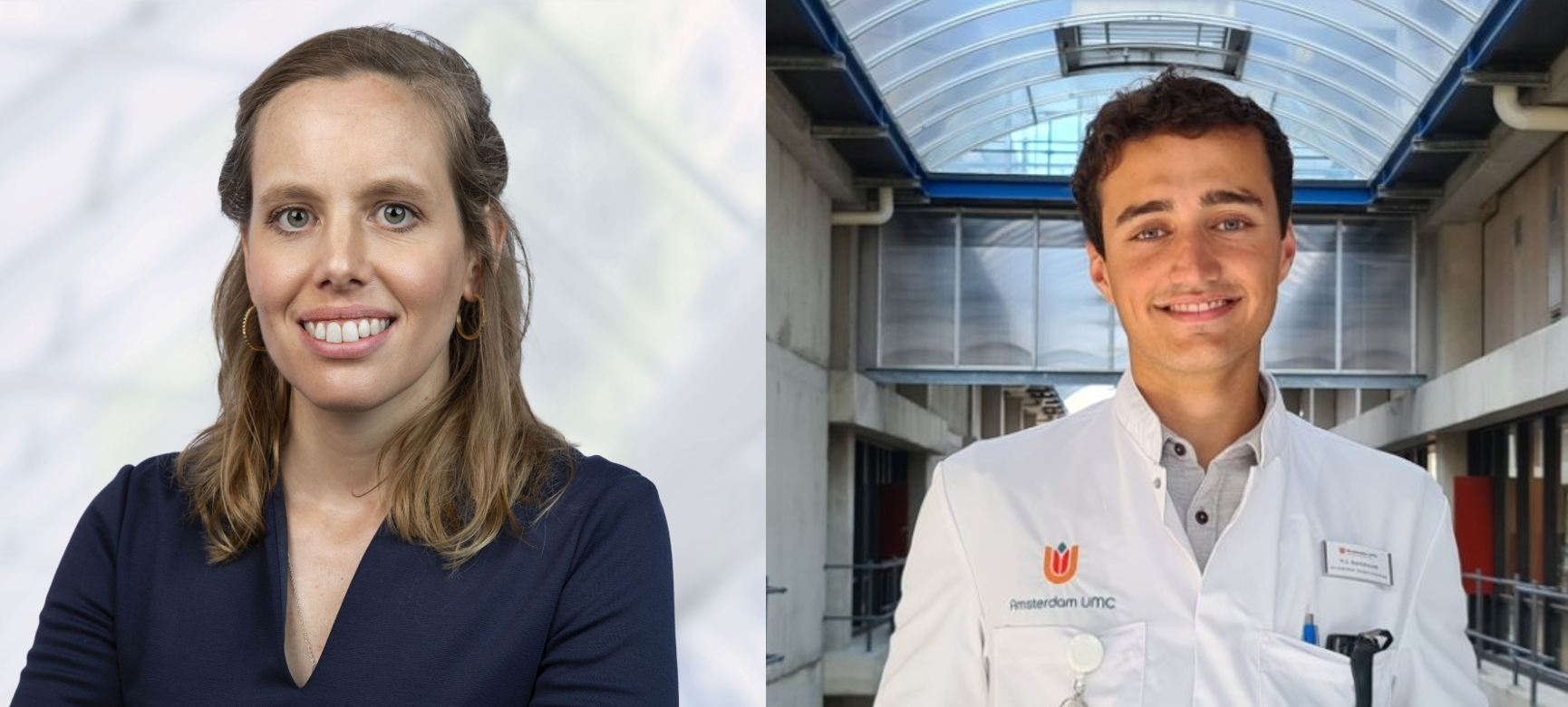Today, four talented researchers received a Dekker grant, of which two are from Amsterdam UMC and affiliated with the Amsterdam Cardiovascular Sciences research institute. These personal grants give the researchers the oppertunity to work on their own research line in the field of cardiovascular research.
Frances de Man - Established Investigator grant
"When the blood pressure in the lungs is too high, the right ventricle has to work harder to pump blood to the lungs. In some patients, the right half of the heart adapts very well to this high pressure. Unfortunately, this is not the case for other patients. The right half of their heart becomes thinner and larger. This condition is known as right heart failure, an incurable disease that ultimately leads to death. Frances de Man aims to investigate why the right half of the heart can adapt well in some people and not in others. She will do this in three ways.
Firstly, she will look for a method to measure the condition of the right half of the heart. "I have a new method that allows me to easily measure whether the right ventricle has become stiffer," explains De Man. "This is crucial information because patients whose right ventricle cannot relax properly experience many symptoms and have a higher risk of premature death."
She will also measure important substances in the right atrium. De Man states, "When the pressure in the atria is too high, hormones can be released here. I want to know which hormones increase first and whether we can use this information to early detect right heart failure."
Thirdly, she will test a new treatment, not a medication, but a type of clip that people can wear on their ear. "It may sound unusual," says De Man, "but by providing very small electrical pulses to the ear, we can activate the nerve that ultimately calms the heart a bit. It could be an important new treatment that might help prevent right heart failure."
Nick Nurmohamed - Junior Clinical Scientist grant
M.D. Ph.D. candidate Nick Nurmohamed is investigating how to easily determine whether someone has inflammation in the coronary arteries. This could enable better treatment for patients, ultimately preventing a heart attack.
Despite treatments for high blood pressure and high cholesterol, many individuals still experience heart attacks. These individuals often have narrowed coronary arteries with inflamed plaques. These vulnerable plaques increase the risk of a heart attack. Women and individuals with certain ethnic backgrounds may even face additional risks of a heart attack due to these inflammations. Plaques develop as a result of atherosclerosis, a disease process in which blood vessels slowly narrow. High blood pressure and high cholesterol accelerate atherosclerosis, but some people experience heart attacks earlier than others. Inflamed plaques play a significant role in this process. However, currently, there are no reliable methods to detect these inflamed plaques.
With his research, Nick Nurmohamed aims to address these inflammations. He intends to improve the detection of individuals with significant inflammation in their coronary arteries. Particularly for these individuals, new anti-inflammatory medications can prevent a heart attack.
To achieve this, he will extensively analyze CT scans of the coronary arteries of the heart using special software. The goal is to develop a scoring system, allowing doctors to easily determine whether a patient has a high risk of a heart attack due to inflammation in the coronary arteries. Individuals with these inflamed plaques can then be better treated with medications that inhibit inflammation.
Visit the Heart Foundation website for more information regarding their awarded projects.
 Left to right: Frances de Man and Nick Nurmohamed
Left to right: Frances de Man and Nick Nurmohamed
About the Dekker grants
The Dekker grants are named after Dr. E. Dekker, former director of the Dutch Heart Foundation. He was the initiator in the Netherlands of civilian assistance in the event of a cardiac arrest. Dekker grants are personalized grants for talented cardiovascular researchers at various stages of their careers.
Scientific research is desperately needed to prevent people from dying or becoming ill from cardiovascular disease. That's why the Heart Foundation attracts top talent with its personalized Dekker grants and helps them build their own line of research.
Source: Dutch Heart Foundation

